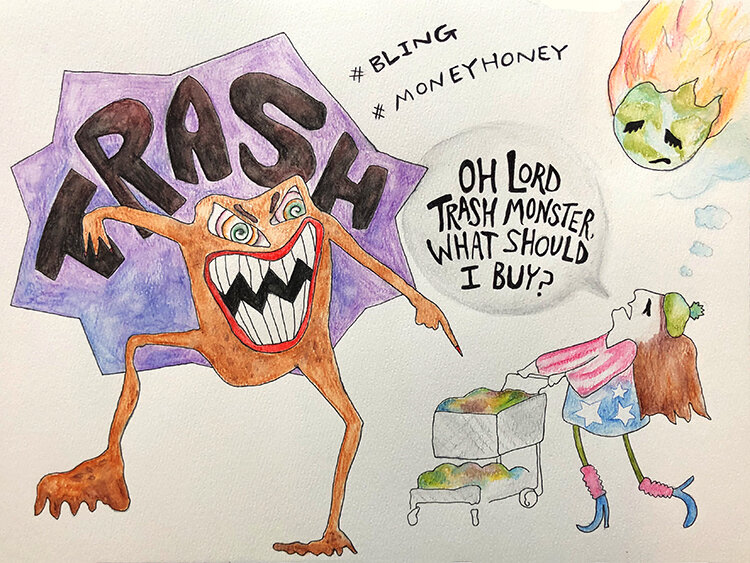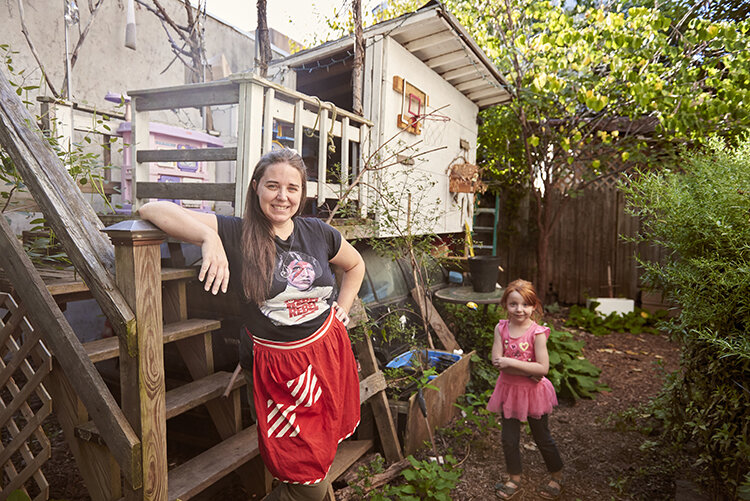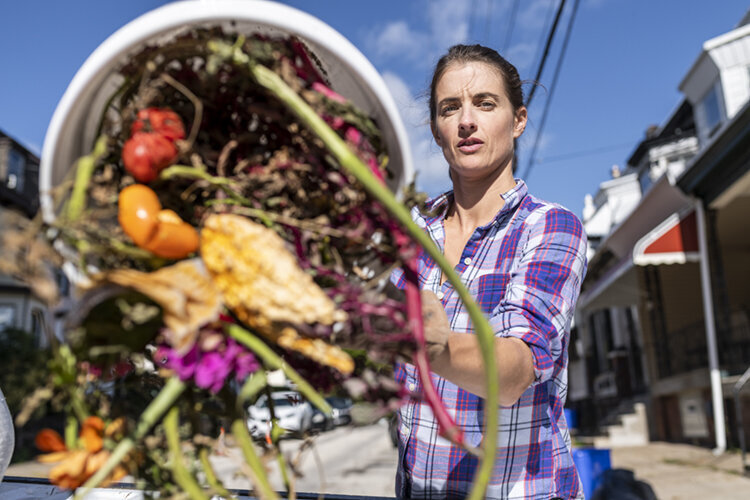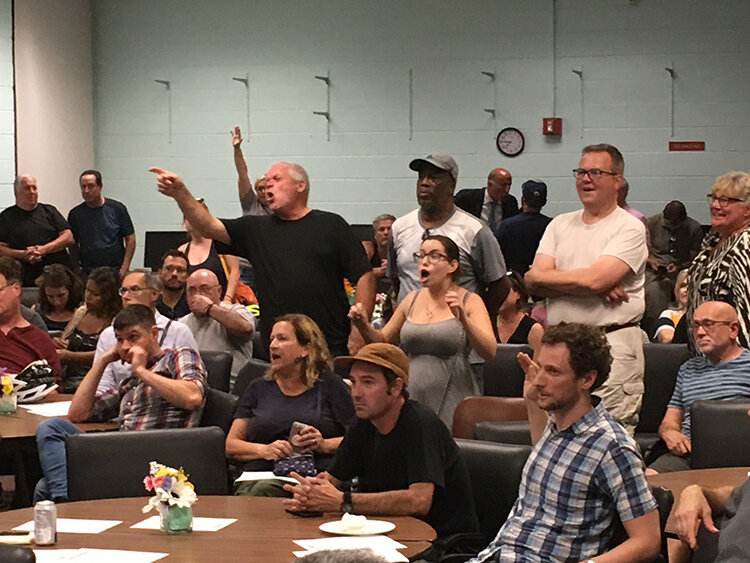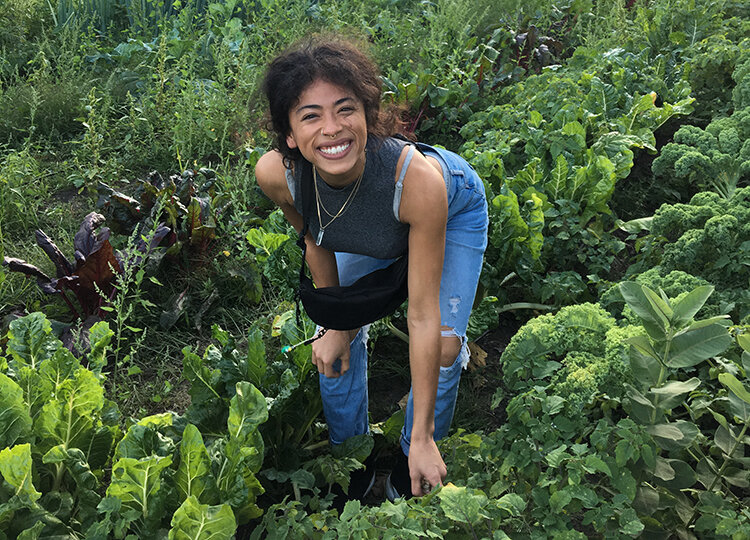With the chilly weather upon us, our homes will reveal the seasonal obligations of closing storm windows, packing school lunches and having a functional hats-and-scarves bin. Every change of season gives us the opportunity to address habits that we’ve carved out over the years and possibly over a lifetime.
Marking the change of seasons with butternut squash soup and apple picking, we understand our place-in-time through ritual. We fall into the natural patterns of the seasonal changes of our beautiful planet.
As Philadelphians, we await the cold winter approaching and know that a pumpkin-spice latte isn’t going to cut it when the days are shorter and the possibility of seasonal depression pokes its head up like a seedling in spring soil.
It doesn’t surprise me that, every couple of months, when we know the weather will change, we ask ourselves to ‘be better’ or ‘start over.’ We protect ourselves from the bad habits of last year by using hope as a crutch. Carving new grooves in our brain’s wiring isn’t a particularly easy task. Just like when working the muscles of our bodies, we know there will be growing pains and resistance. We also know that when we set out for the stars, we might land on the moon.
When considering small changes in our domestic choices, we must remember that this is an uphill battle. One person attempting a zero-waste lifestyle can only do so much, like a drop of freshwater in an ocean of corporate waste. The mass-produced sentiment that ‘one person can make a difference’ is hard to wrap our heads around and comes across as propaganda.
Fundamentally, we need political powers that enforce laws and regulations that curb the escalation of climate change. But in the meantime, can we create solidarity and view ourselves as part of a broader, more robust movement of domestic awareness? This is why I’m an advocate of refusing to buy senseless plastic products, toxic home-cleaning agents and paper towels.
That’s the ticket: Every small change we make should be identified as part of the movement to connect us to each other and our dying Earth. Collective acts of rebellion and the refusal to participate in the status quo will make waves. It is how we live and vote that decides the fate of our planet and, as Americans we need to simplify our living habits and vote for leaders who believe that climate change is real. It is our global responsibility to unite in this capacity.
In the grocery store, I resent the number of choices I’m confronted with. Does buying prepackaged plastic-wrapped school lunches seem like a good idea? And does anyone even care? It seems like everyone, including me, is tired and wants things to be as convenient and easy as possible. Who has time to learn how to make homemade granola bars or sew reusable snack bags?
You do.
Our convenience comes at the expense of the Earth. Even in reducing our waste, we still contribute to the trash in our oceans. We can’t do it all overnight, but we can start by collectively refusing to buy individual pre-packaged snack bags and learning how to buy in bulk. A do-it-yourself attitude has a bigger impact than you might think.
Making modifications, however great or small, to the way we live is the least we can do to participate in the greater narrative. It also requires that we look outside of ourselves and our lifestyle choices in order to consider the whole. What and who are we living for? It seems to me that we have all done the mental gymnastics to self-exonerate and convince ourselves that buying our children sugar-filled, plastic-wrapped ‘nutritional fruit bars’ won’t give them Type-2 diabetes, as the hallowed trash collector whisks away our mountain of problems. How do we get ourselves to care, let alone convince others to? I don’t know.
I do know that if a society is a mirror of its people, how we live in our homes is important. Do we operate them autocratically or do we care for them in a socially conscious, ethically minded and holistic way? Gender equality, awareness of environmental concerns, respect for diversity and the value of work—these things must be taught, learned and applied in the home. Awareness of our tangible, domestic reality can serve as a teacher and guide for deeper states of consciousness and societal healing. How engaged are we and how willing are we to be the change we want to see?
The change of the season can serve to remind us that our world is changing, too. Let’s not take that for granted. Let’s take our compulsion to be “better” and use it to make lasting change in ourselves and homes. If we are in it together, we will carry the hope for a better environment for all life. Keep pushing your wheel of love up the hill, you are not alone.
Lois Volta is a home consultant, musician and the founder of Volta Naturals. loisvolta.com




